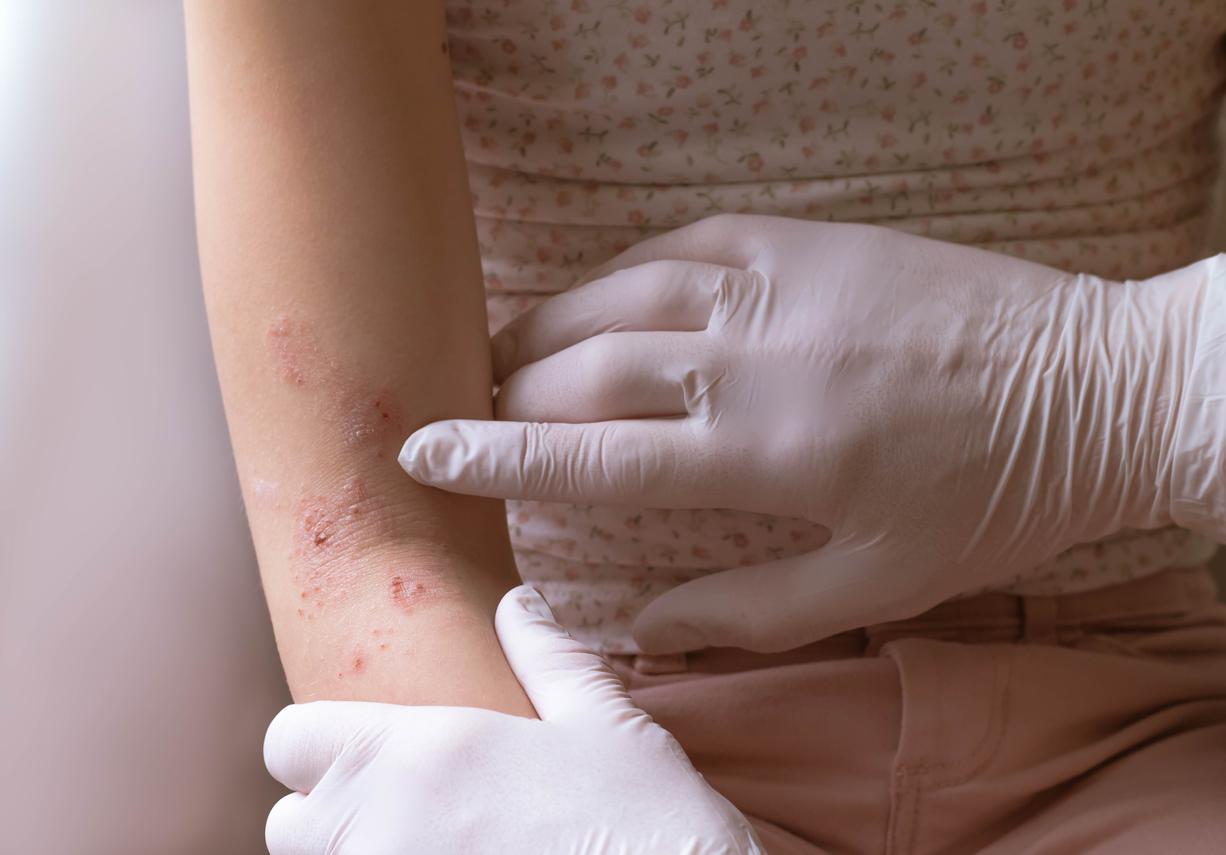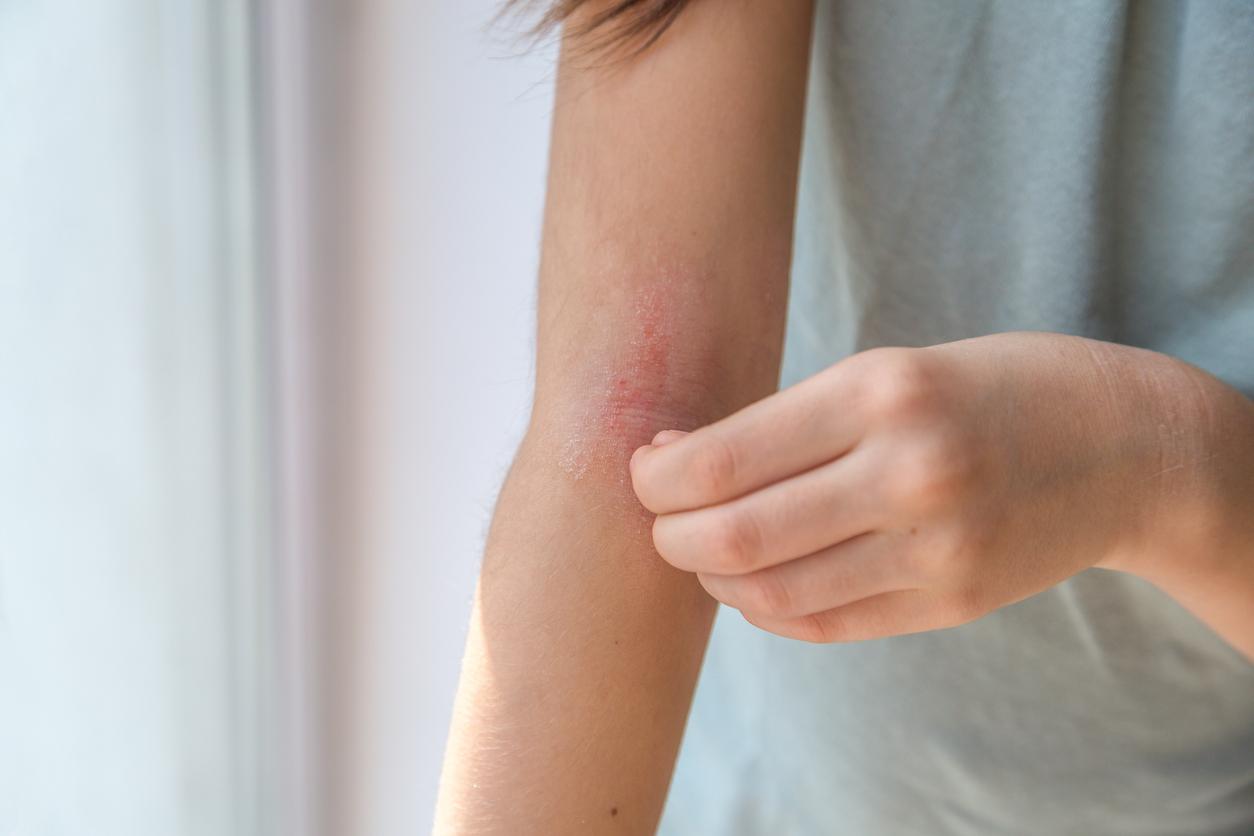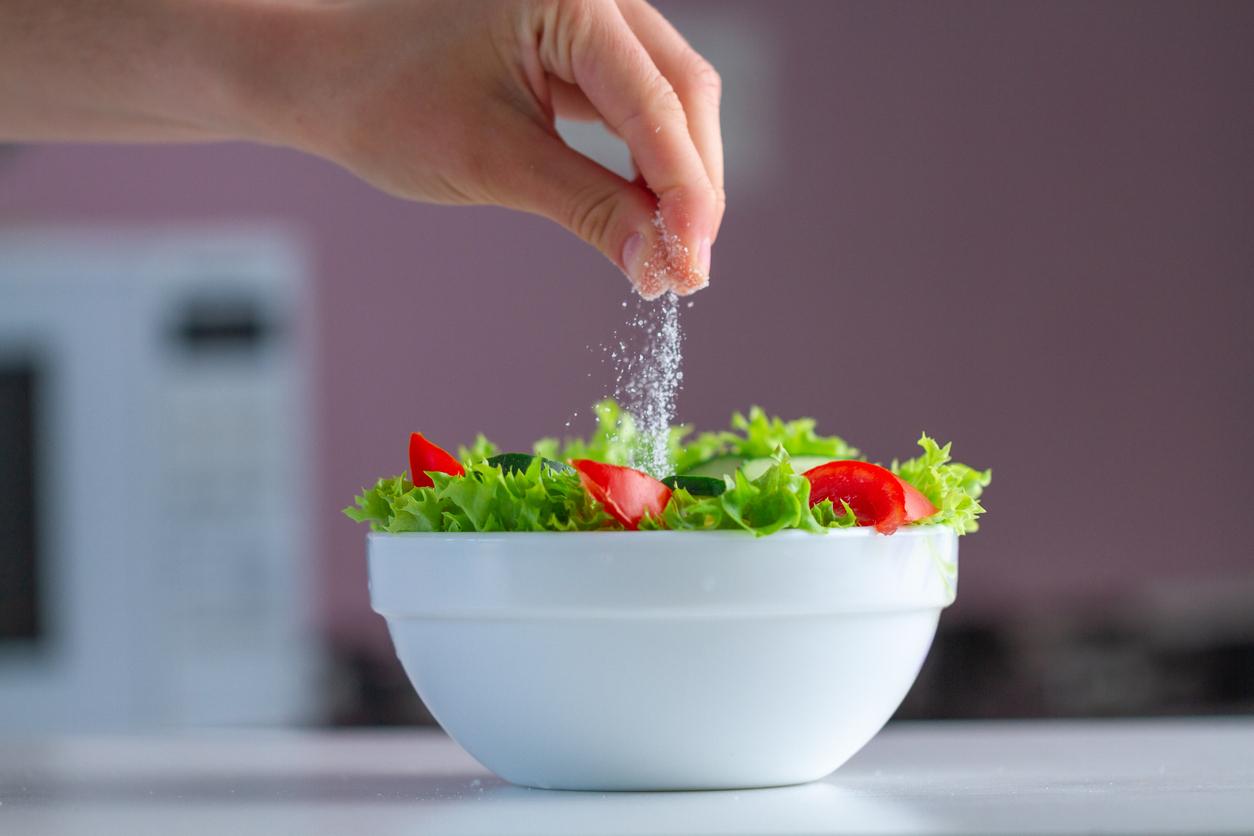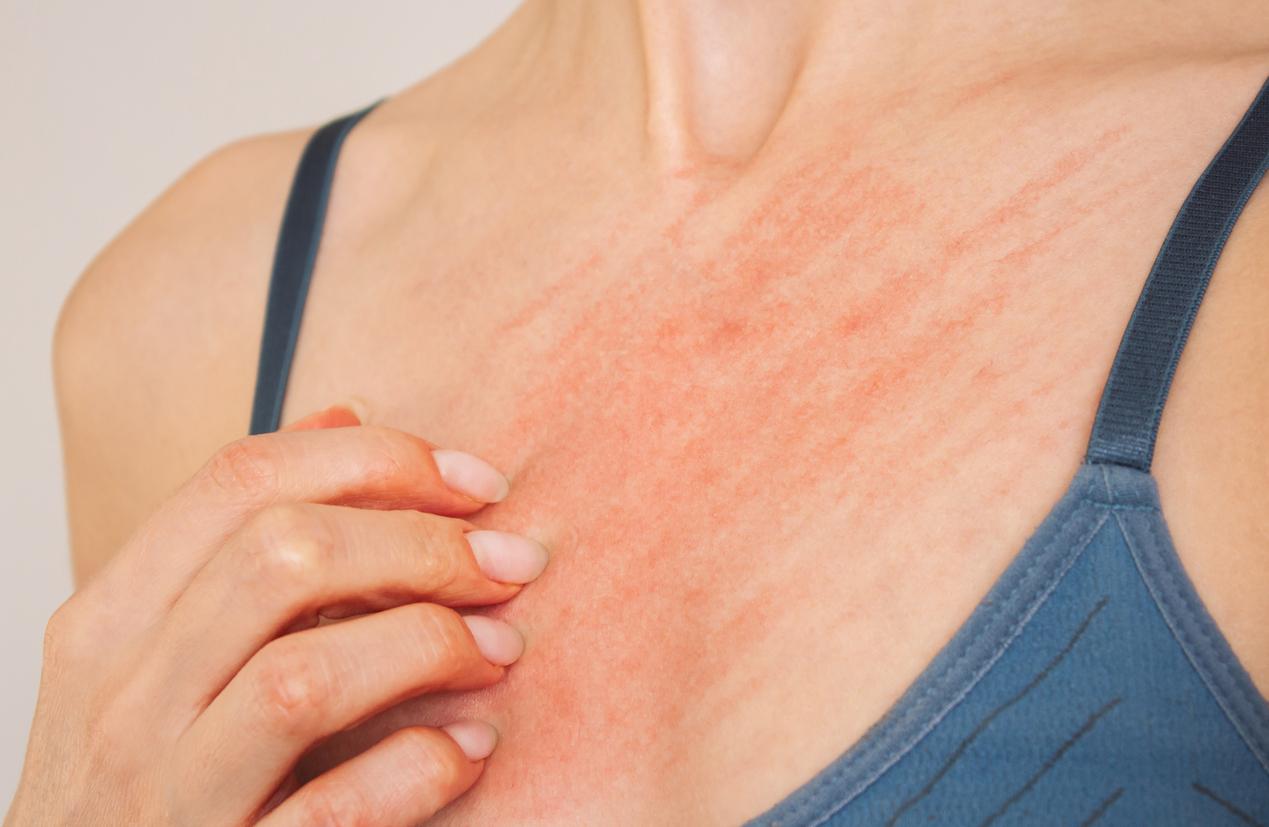The amount of salt consumed impacts the risk of having an eczema flare-up as well as its severity, a new study finds.
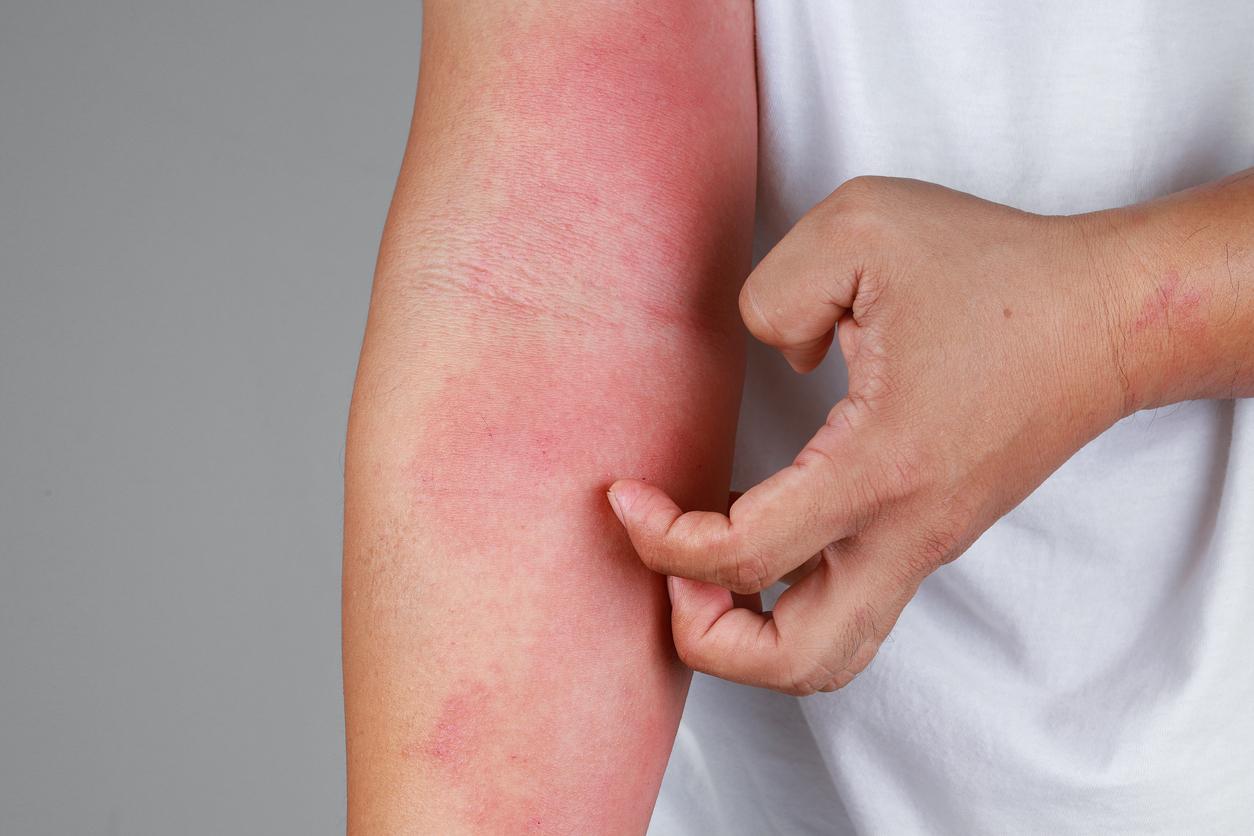
- A diet high in sodium may increase the risk of eczema, according to researchers at UC San Francisco.
- Eating just one extra gram of sodium per day increases the risk of flare-ups by 22%.
- So for researchers, limiting sodium intake could be a simple way for eczema patients to manage their condition.
In France, 850,000 children (aged 6 to 11), 700,000 adolescents and 2 million adults suffer from atopic eczema. According to a study conducted by the University of California San Francisco, limiting their salt intake could be a simple way to reduce flare-ups of this skin disease that causes significant itching.
Eczema: Every gram of salt makes flare-ups worse
To assess the influence of salt on eczema, the researchers analyzed data from more than 215,000 individuals aged 30 to 70 who participated in the large British study UK Biobank. They included their urine tests and electronic medical records. The team was able to determine how much sodium each person consumed as well as those who suffered from atopic dermatitis, another name for this skin condition.
Using this information, the scientists found that each additional gram of sodium excreted in urine over 24 hours was associated with an 11% higher risk of being diagnosed with eczema. The severity of the condition was also increased by 11% while the risk of having a flare-up increased by 16%.
In a second step, the team looked at 13,000 American adults. They found that consuming just one extra gram of sodium per day — about half a teaspoon of table salt, about the amount in a burger — increased the risk of flare-ups by 22 percent.

Eczema: Limit salt to control the disease
“Eczema flare-ups can be difficult for patients to manage, especially when they are unable to anticipate them and do not have recommendations on what they can do to prevent them.”notes Dr. Katrina Abuabara, professor of dermatology at UCSF and corresponding author of the study in a communicated.
Thus, for the scientist and her colleagues, their research, published on June 5, 2024 in the journal JAMA Dermatologyprovides an answer for these people suffering from atopic dermatitis. Limiting their consumption of dietary sodium could help them limit flare-ups and thus manage the disease.







